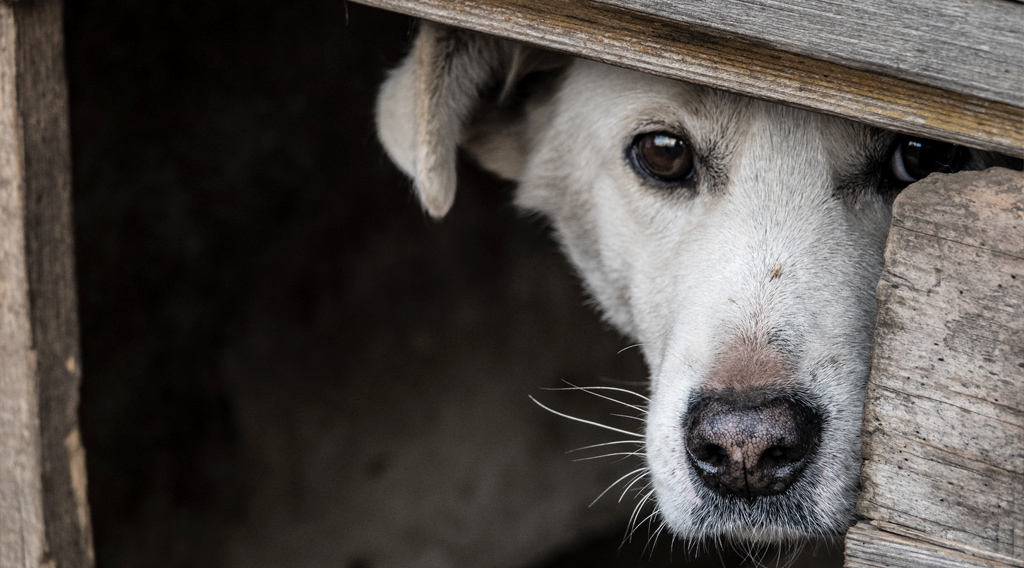If your dog is one of the approximately 40% of dogs afraid of loud noises, you dread the two holidays traditionally celebrated with firecrackers—Independence Day and New Year’s Day—as well as any number of special events throughout the year featuring fireworks displays.
Thunderstorms may be a challenge, too.
We’ve written about noise anxiety before in our post, “Managing Your Pet’s Noise Anxiety.”
In this post, we consider noise phobia in dogs, defined in an article from the American Kennel Club’s Canine Health Foundation as “an excessive fear of a sound that results in the dog attempting to avoid or escape from the sound. It’s an irrational, intense and persistent fear response that can develop at any age and in any dog breed.”
A dog’s instinctive behavior to escape from a frightening noise is normal. Problems arise when dogs overreact to sounds that don’t indicate any real danger.
According to the AKC, with a noise phobic dog, “Characteristic behavior can include but may not be limited to hiding, urinating, defecating, chewing, drooling, panting, pacing, trembling, shaking, and barking. A fearful dog might seek out his human family; try to escape the noise by jumping through windows or chewing through walls, and running away.”
Noise Phobia 101
To learn the basics of canine noise phobia and how to manage it, we recommend this two-part video series from the Fear Free Happy Homes YouTube channel. The videos take less than five minutes each to view.
A third video from Fear Free Happy Homes, “Treating Your Dog’s Noise Phobia,” has a running time of six minutes. As the title suggests, this video focuses on specific steps you can take to manage your dog’s noise phobia.
We Can Help
If your dog is noise phobic, we are ready to help, beginning with a thorough check-up to rule out medical conditions that can aggravate anxious behaviors. As many as a third of the patients we see for anxiety have medical issues that are causing or contributing to their problems.
Treatments we recommend for your dog’s noise phobia will most likely include some combination of behavior modification, environmental controls and therapy using anti-anxiety drugs, antidepressants or tranquilizers.
While we can’t cure noise phobia, we can work with you to create an individualized treatment plan to ease your dog’s symptoms. With vigilance, patience and teamwork, we can help you and your dog cope with noise phobia, resulting in an improved quality of life for all concerned.

